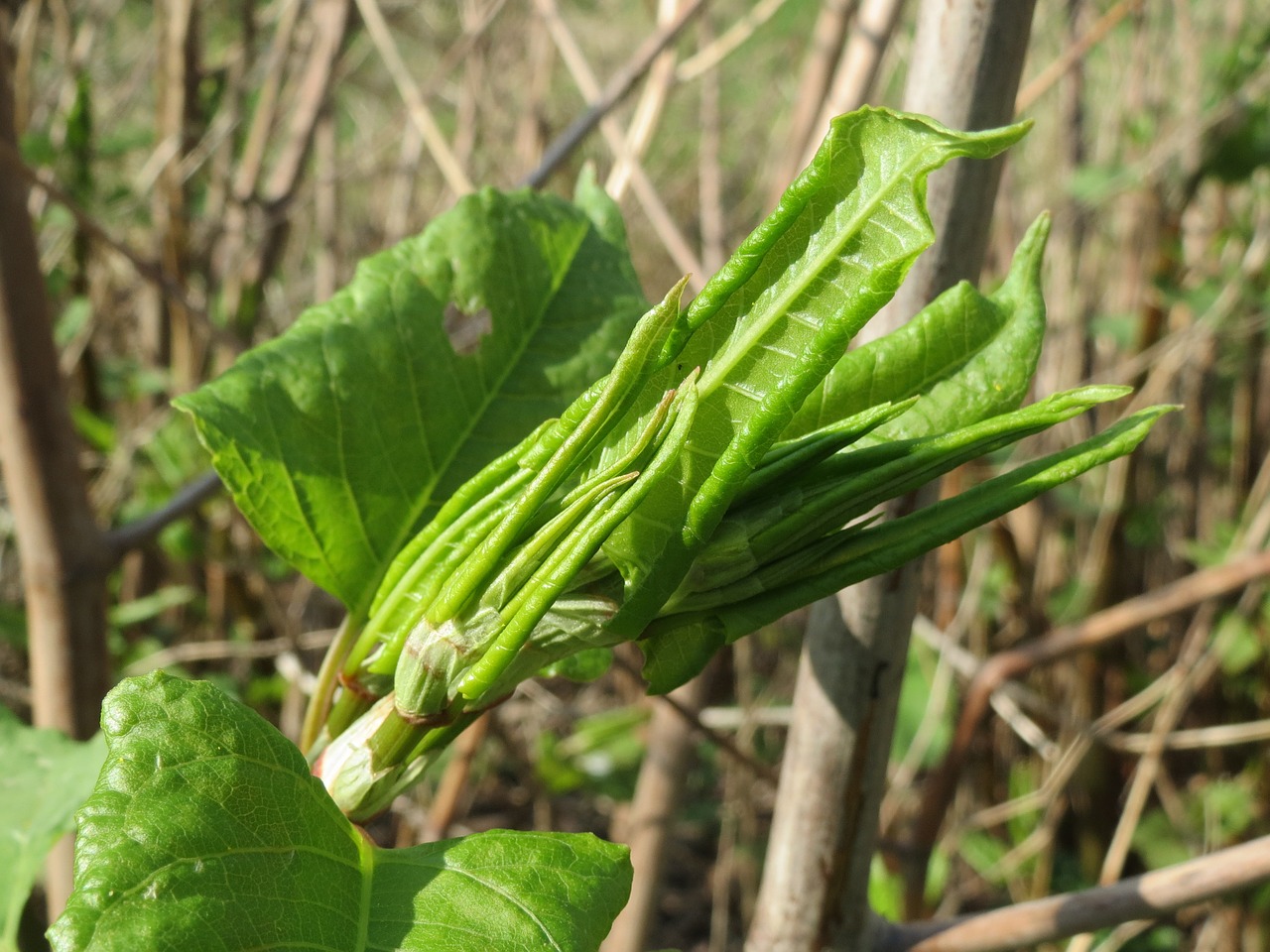Is Japanese Knotweed Poisonous?
Contents
Is Japanese knotweed poisonous?
Japanese Knotweed is not poisonous. Unlike the similarly-named non-native Giant hogweed, it does not contain any poisonous elements, making it safe to touch and pick.
Does Japanese knotweed cause burns?
Japanese knotweed does not cause burns or skin irritation, unlike Giant Hogweed which does burn and contains toxic chemicals known as furanocoumarins. This is confirmed in Schedule 9 of the Wildlife and Countryside Act 1981 [1] as it states that other knotweeds such as Giant hogweed are dangerous, unlike Japanese knotweed.
Is Japanese knotweed dangerous?
Japanese knotweed is not dangerous to humans or animals, it is often used in various recipes such as knotweed crumble and Japanese Knotweed beer. Japanese Knotweed is still a dangerous plant to buildings as it can cause immense structural and financial damage to property due to its ability to grow 10cm a day relentlessly, often harming weak points in masonry, flood defences and property foundations.
It is a nuisance plant that can set back house sales, cost homeowners thousands in removal costs and hours of precious time in settling legal matters. Whether it is growing in your neighbours’ garden, or you’ve just bought a house with Japanese knotweed, it’s likely that you’ll want to find out as much about this foreign invader as possible, and it’s not unreasonable to wonder whether this much-maligned plant could cause you or your family harm.
We can answer your Japanese knotweed questions!
Talk To UsIs Japanese knotweed harmful to humans?
Despite causing damage to property, Japanese knotweed is not harmful to humans; although some have reported that contact with the plant can cause some mild skin irritation. Japanese knotweed is often confused for Giant Hogweed, which does pose a real threat to people. Giant Hogweed’s sap can irritate the skin, causing blisters, rashes and even blindness. For that reason, it’s a good idea to make sure you positively identify Japanese knotweed before handling it in any way.
Is Japanese knotweed poisonous to pets?
Japanese knotweed is not poisonous to pets. There are many plants that could cause harm to your pets, but Japanese knotweed is not one of them. Common house pets such as cats and dogs are unlikely to take a bite of the plant, but even if they do they shouldn’t come to any harm as a result.
Why is Japanese knotweed so dangerous?
Japanese knotweed is very dangerous because of its ability to cause devastating costly damage to its surrounding environment through its vigorous rapidly growing root system that frequently damages property foundations, flood defences, and pavements with some plants invading houses.
Can animals eat Japanese knotweed?
Grazing animals, such as goats, can eat Japanese knotweed however, farmers should seriously consider this option before allowing their herd to do so as animal consumption could lead to undue dispersal of the plant. Japanese knotweed is a unique invasive plant as it is too cold for the plant’s seeds to properly germinate in the UK. The plant multiplies via its rhizome system which can reproduce from the smallest of fragments. Allowing animals to eat the plant could exacerbate the infestation and lead to the further spread of Japanese knotweed.
We can answer your Japanese knotweed questions!
Talk To UsCan people eat Japanese knotweed?
It is possible for people to eat Japanese knotweed, however, there are some risks inherent in doing so. Some plant foragers have identified the best times of year to harvest the invasive plant [2], however, this must be done with caution. The plant is said to be edible as a young tender stem during the months of April and May. As the plant matures, the stems toughen and can cause abrasions in the mouth. Although there is a wealth of recipes online, it’s worth noting that there are few specific health benefits associated with eating it, other than as a herbal treatment for Lyme Disease and a means to lowering cholesterol [3].
In the event that Japanese knotweed is harvested for consumption great care should be taken to ensure that the plant has not already been chemically treated. Those that are intent on foraging Japanese knotweed should also ensure that they do so within the law pertaining to Japanese knotweed. It is an offence to cause the spread of the plant and those who are found to do so could be fined or even imprisoned. Make sure you fully understand the legal implications of handling Japanese knotweed before planning a foraging trip.
What does knotweed taste like?
Botanist and columnist James Wong has reported that Japanese knotweed has a similar ‘bright and tangy flavour’ to rhubarb and noted in his article for the Guardian [4] that it can be served in a variety of ways including desserts, such as crumbles, or as a chutney or sauce with cheese or meat. Foragers have noted that is has a lemony flavour and can also be used in the creation of wine or beer.
Japanese knotweed is not poisonous, but whilst eating the plant is certainly possible, it’s by no means the most effective method of removing it. Getting rid of Japanese knotweed is best managed with the help of an experienced firm and an insurance-backed PCA-accredited treatment plan.
References
[1] Wildlife and Countryside Act 1981 – legislation.gov.uk – http://www.legislation.gov.uk/ukpga/1981/69/schedule/9
[2] Japanese Knotweed Identification (Fallopia japonica ) – Totally Wild UK – https://totallywilduk.co.uk/2018/10/24/japanese-knotweed-fallopia-japonica/
[3] The Repeated Administration of Resveratrol Has Measurable Effects on Circulating T-Cell Subsets in Humans – Oxid Med Cell Longev. – https://www.ncbi.nlm.nih.gov/pmc/articles/PMC5435979/
[4] Gardens: plagued by knotweed? Eat it – The Guardian – https://www.theguardian.com/lifeandstyle/2016/feb/21/eat-japanese-knotweed

